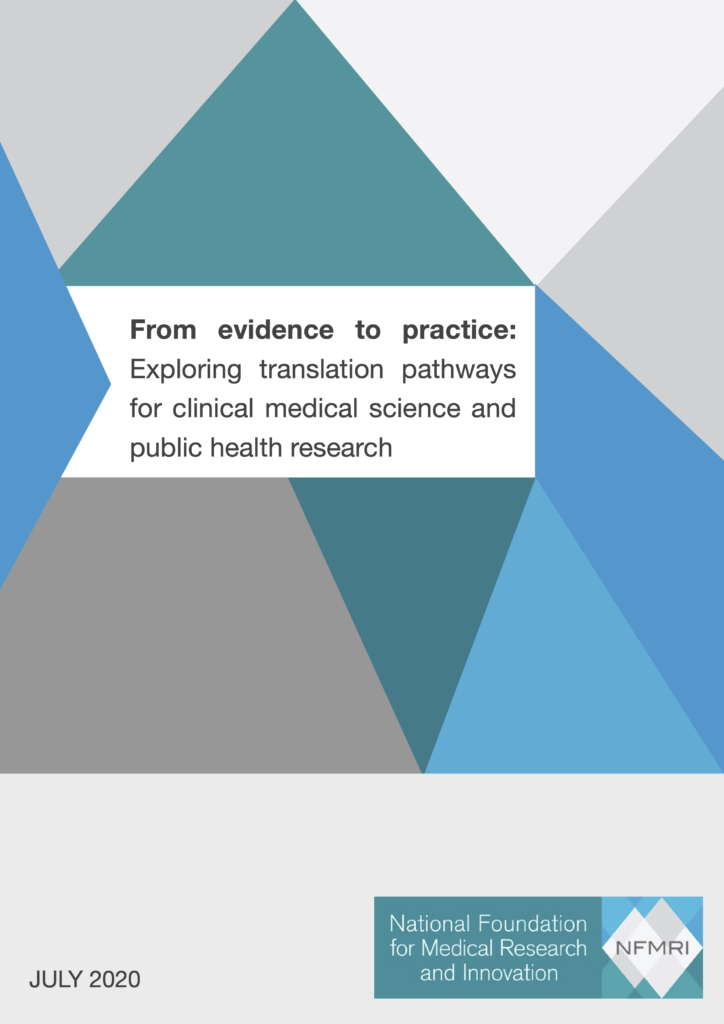Hannah and Daniela are Master of Biomedical Science students at Monash University who volunteered to undertake the background research and preparation of this report as interns with NFMRI.
Many health scientists enter their fields with the purpose of creating new knowledge that will make a positive difference. However, the vast majority of research findings lay dormant in published papers, and can never impact the health of patients or the wider community. This is not only inefficient, but also presents an ethical conundrum. Most supporters of science, including the tax-paying public, fund research since they believe it will benefit their communities. Yet research institutes and associated organisations that receive these funds may find it challenging to deliver on this expectation.
This is especially apparent in research areas where translating evidence into practice has little commercialisation potential, such as clinical medical science and public health science. Funding in these areas is directed predominantly towards research activities; however, solely funding research is not sufficient for driving translation. This is because translation requires the skills and expertise of many non-scientific fields.
This is important, as the translation of research in these areas provides substantial social benefits through the development of evidence-based policies, clinical practice, health services and health education.
How could we address this problem to increase research translation and deliver community benefits? This important question remains unanswered within many research institutes, funding bodies and associated organisations.
We know that successful and efficient translation requires:
• Extensive planning and strong management;
• Targeted and high-quality research;
• Strategic and coordinated multidisciplinary collaboration; and
• Substantial stakeholder engagement.
Aside from the pathway from basic science towards innovation, the overarching systems and processes to achieve translation are not well-defined in other research areas. In addition, it is unclear whose responsibility it is to lead translation, and supply the resources, networks and capacity required to meet the requirements outlined above.
Unfortunately, these responsibilities usually fall on busy and resource-poor researchers, who are trained to drive science and not translation, and whose time may be better spent using their highly specialised skills to carry out the research that they love. Increasing translation and impact will likely require systemic change in the way researchers and health bodies approach medical science.
Could funders of biomedical and health research provide the answer to this problem?
Such organisations are well-equipped to encourage and lead translation. They hold extensive project management experience and have the opportunity to leverage their internal capacity and pre-existing relationships with stakeholders to facilitate translation. If funders were to build up the staff and capacity to proactively lead translation within their organisation, this would represent a major paradigm shift within the research space, resulting in purposeful impact that improves community health.
Increasing translation is a great challenge in Australia and globally. It is encouraging to see that organisations are increasingly questioning how it can be efficiently and effectively improved.
While many questions remain unanswered, a shift in focus presents many opportunities for organisations within the research space. To achieve a better and more efficient healthcare system, it is crucial that challenges impeding translation are overcome, and the vast opportunities presented by this issue are taken advantage of. Most importantly, we must keep asking the questions whose answers will lead us to greater health and community benefit.




